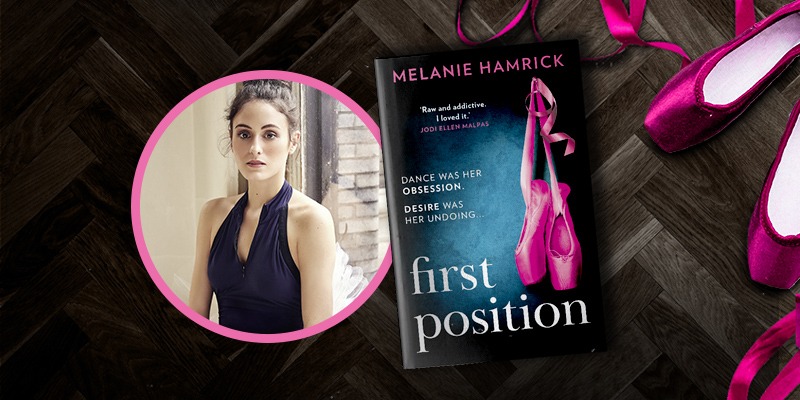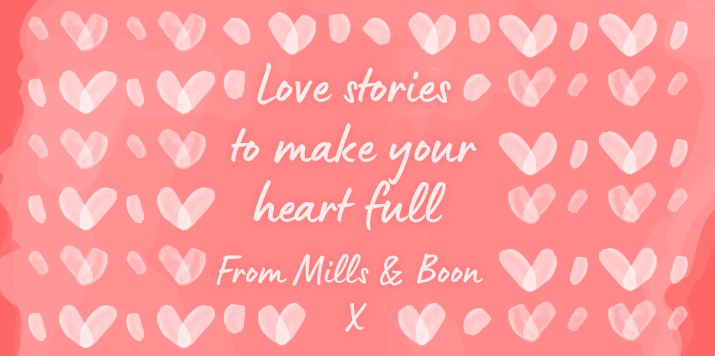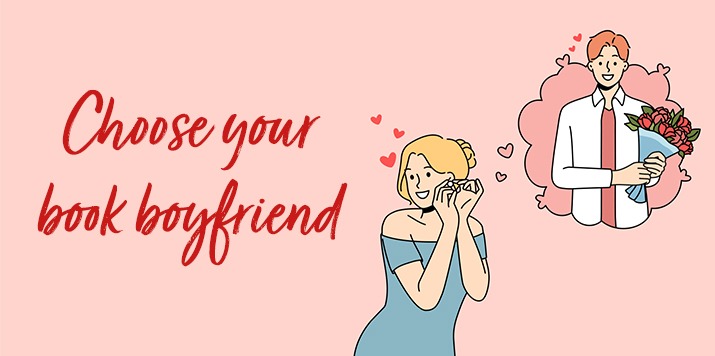He could be the making of her. Or he could cost her everything.
It’s just two weeks to go until we publish First Position, the captivating and intense debut romance by Melanie Hamrick. Read on for a synopsis and the first chapter of the book. And don’t forget to pre-order First Position now!
Sylvie Carter has broken every rule on her way to the top of her profession. But the ballet world is as unforgiving as it is ruthless. When a devastating scandal erupts, Sylvie alone is blamed, and loses everything she’s ever worked for. She vows never to make the same mistake again. But when Sylvie is magnetically drawn to renowned dancer Alessandro Russo, once again her world starts to spiral.
From New York to Vienna and Paris, Sylvie is caught between the glamorous and dark side of ballet. Challenged, both professionally and personally, her ambition sparks a journey of redemption and sexual awakening as she embarks on an intense and passionate relationship that could be the making of her… or cost her everything…
*
Chapter 1
WASHINGTON, D.C. NOW
Sylvie
I used to love the word encore. It meant everything. It meant I want more. It meant they wanted more, more of what only I
was able to give. It meant I was good. Too good to stop.
Encore meant, I don’t want you to say goodbye—not just yet.
Once upon a time I yearned to hear it. Now the word fills me with dread. I’m a weary traveler under the hot sun, exhausted, desperately thirsty, and achingly hungry; and I’m being told that the end is only a mirage—there are more miles yet to go.
“Encore!” Diana’s voice screams the word. “Again!”
I take my position and repeat the phrase for the hundredth time. Sweat is running down my forehead from the exertion under the hot stage lights. I can feel a blister beginning to swell and bloom on my heel. I know that’s going to mean pain, and that the more I ignore it—and I will ignore it—the longer it will take to heal.
I smile. Not because it’s all worth it or anything like that. I
smile because I must, and if I don’t—and if I don’t convince Diana that the smile is effortless—I’ll just have to do it again.
Again. Again. Encore.
Diana is the ballet mistress, which means she is basically like the coach, and we’re her players to prep for the big game. She begs more of every position, straightening every line in our physique, making us bend until we nearly break—all while man- aging to look as peaceful and easy and effortless as a weeping willow.
Diana is who yells encore until the word starts to feel like a whip through flesh.
Last rehearsal, Diana’s command of encore meant doing a piqué arabesque fifty-seven times in a row. My feet bled at the end. No one cares when your feet bleed here. Honestly, to see a track of bloody footprints down the glossy floors of the halls is no more suspicious than grass and dirt in the locker room after a football game.
The week before that, encore meant doing échappés until the entire bottom half of my body went numb.
If beauty is pain, then becoming art is torture.
Never-ending torture too. It has taken me twenty years and counting to hold my hands correctly, and every single day I am still told that a finger is out of place. Usually it’s my thumb, jutting out just a bit too much. I catch a glimpse of it on a rare moment when I am not thinking about the stage and my body, and the relationship between them. I hate my thumb. I hate it like it’s out to get me. And in a way, it is. I’m supposed to have control of it and yet . . . I don’t.
My fucking thumb.
And, of course, it doesn’t stop there. I privately sneer or glare at every inch of my body. It’s not just me who does this. It’s every dancer. We glare and find fault in the mirror and in one another— like predators looking for weaknesses in prey.
I loathe the extra millimeter around my hip bones that forms when I’m retaining water before my period. The greyish-blue dis- coloration beneath my eyes from practicing too late into the night and waking again too early. And later I will glower at my heel for daring to grow a blister when what I need is calloused, tough skin that looks as smooth yet still as hard as a porcelain doll.
We wait for our entrance music. Diana is already poised to dislike the performance and ask for another before we have even begun.
I join hands with the three other swans. None of us groaning or letting on to the others that we are worn too thin to go again. They smile just as placidly as I do and stand as upright and solidly as ice sculptures.
The combination we are being told to do again is, I must admit, absolutely essential to get right. It is the Dance of the Cygnets, also known as the Little Swans. The beauty of it lies entirely in its hypnotizing synchronicity. The four of us dance in complete unison for a little more than ninety seconds, our feet moving so effortlessly that we almost seem to float. Our gazes moving at the same rate, the effort and concentration never appearing on our smooth, placid, pleasant faces. And it ends with a final arabesque to the knee.
An arabesque that must be hit by all four swans at the exact
same moment, nothing short of mirror images. The height, the balance, the momentary suspension between the leg and the floor must be exactly the same.
The music has still not begun, so we wait.
I think of the half-empty box of Sobranie cigarettes in my bag. I want one so badly I could almost run off the stage and go to them like a comforting lover.
Dance of the Cygnets is a crucial lesson for a ballerina, not that all of us get the chance to dance it, much less dance it until we are filled with rage. It’s a lesson in humility. The goal is not to stand out, or even to be seen as an individual beside other individuals. The aim is to become part of a moving machine. A four-part monster with many limbs moving together. A machine with pis- tons, not four girls with minds of their own and even tensions and feelings between them that should prevent them from something as intimate as touching, or as cooperative as being synchronized. I used to yearn to be singled out. The old me would be craving individual celebration for being the best of the four. And so I recognize it in my fellow dancers, I can see that that’s what they want.
It’s such a difficult balance of trust and faith in the others—if one of us indulges our need to be seen, then the dance is ruined and we all look bad. But logic is not involved when they fantasize about Diana’s bark turning to cooing praise, acknowledging and celebrating the dedication, talent, the fine lines, and the beauty. It’s the craving not just to be lauded but to be elevated above the others.
“Stop,” Tess bites at Alicia. “You’re squeezing my hand too hard.”
“I wouldn’t have to if you could keep up,” Alicia snaps back. “We could all be done with this shit if Tess would stop holding her arabesque longer than everyone,” I say.
“Seriously, it’s so obviously on purpose,” says Alicia.
“I have no idea what you’re talking about; I’m simply doing it right.”
Tess has the nerve to sound truly dismissive and patient with us. It’s obscene. We all know what she’s doing, including her. “Shh!” Inga hisses.
The music begins, and our cue approaches.
Inga begins to quietly count under her breath to help us move as one.
The music and her counting fade into my periphery as I count along in my head.
I must be perfect. But not because I want to be praised. Only because I want to get off the stage. And perfection is the only way to be free.
We do seven piqué passés across the floor.
1 and 2 and 3 and 4 and 5 and 6 and 7, fifth hold.
Then right into sixteen fast emboîtés. Inga’s count quickens as my own does.
1, 2, 3, 4, 5, 6, 7, 8, and . . . piqué arabesque to the knee. Hold . . . release.
Then Tess releases. A little late. Again. “Encore! As one! Allez!” says Diana.
We all breathe and release for the few seconds we have. “Tess, I swear to god—” I begin, not even sure how to end my threat.
Tess blinks a few times and looks down. Alicia looks shocked. “Are you going to cry?”
There is an invisible shadow of anger in Alicia’s question—if someone is going to have an emotion besides silent seething or whispered sniping, then we will be set back even further.
“No!” A tinge of rose appears in Tess’s cheeks. It is so sheer that I might be the only one among us all who can see it. I know what she’s feeling because I know the feeling. She, like I would be, is of- fended at the very idea that she might cry in front of the company. I roll my eyes at this. How do they have time to give such a shit?
And we go again, the familiar words pulsing in my temples: I have to be perfect.
I have to be perfect.
I don’t even hear the music. I only hear the counting.
1 and 2 and 3 and 4 and 5 and 6 and 7, fifth hold.
1, 2, 3, 4, 5, 6, 7, 8, and . . . piqué arabesque to the knee. And . . . release.
As one.
“Yes, at last! Good,” says Diana, who turns from us to talk to Matt Martin, who is saying something about Paris. She nods and looks at something he shows her on his iPad.
“Finally,” says Alicia, relaxing from moving statue into human again.
“Was that so hard?” I ask Tess, my voice sharp staccato.
“I don’t know, Sylvie. Was it hard for you to keep that constipated look on your face the whole time?” Compared to me, her voice sounds like honey. Toxic honey.
I laugh. I don’t care. And again . . .
“Encore! Again, get it right this time, but I want less, please!” Diana’s hand is on her waist and she begins to pace. Tired of us. Tired of us for not being perfect.
I begin to protest, but Inga shoots a look at me. She’s right.
One complaint will buy five more repetitions. “Let’s go,” Diana says, and the music rises.
We cross arms, join hands, smile, and begin again.
1 and 2 and 3 and 4 and 5 and 6 and 7, fifth hold.
1, 2, 3, 4, 5, 6, 7, 8, and . . . piqué arabesque to the knee.
Diana claps her hands once and emerges from beyond the dusty rays cast by the stage lights. All four swans brace for impact as she floats toward us. Her face is serene and inscrutable. It al- ways is. I feel a dewy drop of sweat run down my breastbone to seep into the fabric of my light pink leotard.
I rest my hands on my hips, trying to calm my nerves and ap- pear to be not the problem.
“Did you not hear me?” asks Diana, with that quiet, murderous tone she is so famous for.
There is a brief, almost funny moment when all the swans look
around at one another, feigning innocence. Not me, I stare right at her. I know who she is talking to. There is a certain, poisonous je ne sais quoi that Diana reserves just for me. My humiliation at being identified as the problem is made worse by the utter confidence I have that if it had been anyone else, I would have felt relieved and even agreed. Like I’m sure the other three swans are feeling and doing right now.
“I asked if you heard me,” she says, sinew in her tone as she removes all doubt that she is asking me.
“I did.”
I know I am not the problem. I know, even, that Diana might be picking one of us at random to direct her criticism at, but it does not matter. Because she always picks me.
“Then why did you not listen?” She grins at me, her eyes void of any light.
The other twenty-five dancers who wait on the stage are absolutely silent as Diana’s verbal blade cuts through the air.
As Diana takes her time closing the gap between us, I smooth down my blond bun and tighten my hair pins. Just in case I need to repeat anything. I swallow my pride and put a smile on my face.
“I am listening. I must not understand what you mean by less.”
I used to look to Diana as the perfect version of a retired ballerina. I’ve seen her dance. She was brilliant. And now she is elegant. Now she doesn’t need the validation from beyond the stage lights.
She moves toward me, her light linen blouse hanging on her delicately, sweeping through the air as she moves.
She steps close enough for me to smell her rose water perfume. I wonder if that floral scent is a modern perfume like Le Labo’s Rose 31 or something older and more classic like Chanel Coco Mademoiselle Eau de Parfum. I can see the lines around her eyes that somehow make her more regal, the light strands of grey hair in her dense, brunette chignon.
“What happened to you, Sylvie?”
A question simple on paper that sends glacial shivers down my spine.
“I don’t know.”
“You don’t know?”
She repeats my words. The twisting of her French accent makes my words—in my simple American accent—sound even more foolish than I could do if I were kidding.
I look for words, hoping I can find a way to avoid the dismantling of my delicate psyche. “If you could just be more specific. About . . . about what it is you want more of. Or . . . or less of—” “Less of this. Less”—she glances at my sweaty chest—“less Sylvie Carter.”
I start to answer, but I have nothing to say. When you have already been carved out like a jack-o’-lantern, your guts thrown in the trash, your frame hollowed completely and turned into some- thing only to serve a temporary purpose, just how exactly does a person remove themselves any more than that?
I am empty, here to hold within me the fire lit by someone else,
for someone else.
Diana goes down the list of all the ways in which I have disappointed her during the rehearsal. I remain poised and still, nodding a little every time I think I should.
“You are stuck”—the micro-raising of her voice almost startles me—“in your head. You’ve been told this for how long now?”
I swallow. Give a small nod.
“Here,” she says, putting a palm to my temple.
She doesn’t move quickly, and yet I still flinch as if I am about to be slapped.
I see her notice, and her cheekbones twitch a little. Her version of a scoff.
“Leave the stage,” she says simply. “Figure it out. And we will move on to”—she looks at her open notebook—“act three with Jocelyn. Somebody find her, please?”
I shake my head and go. Jocelyn, Diana’s little princess.
As I grab my bag from the wings and walk off stage I run directly into Jocelyn, practically chest to chest. I feel her before I even see her face. The heat from her body comes at me like an assault. Her energy is always like that, no matter what she’s doing. I feel like prey in the wild. When she’s around, I can feel her there. As if she’s waiting to pounce.
Her dresser, Kate, trails behind her. She’s like a saddled pack mule, weighted down with anything and everything that Jocelyn might need during her rehearsal. On her shoulder hangs a bag stuffed to the brim, and I can see that she has leg warmers, warm-up pants, warm-up booties. She’s also weighed down by Jocelyn’s dance bag. In a clear plastic tote on her other shoulder, I see Vaseline, ChapStick, a neatly kept sewing kit, mints, eye drops, a phone charger, and more. She’s also clutching a steaming, powder-blue Hydro Flask and a Nalgene water bottle with Jocelyn’s name written on the side. Every girl has one, so we’re like veritable kindergartners with our names plastered on our things. Kate struggles to close the lid with full arms and hands and Jocelyn doesn’t pay any attention to her.
I look at Jocelyn and immediately regret it. When the two of us make eye contact, it’s like a lit match meeting gasoline.
She’s the flame. I am the gas.
She burns bright and hot and fast, often burning those who aren’t afraid to touch her. And those who are. I feel as though I am merely the toxic environment that erupts and explodes when it crosses her fire.
I try to move past Jocelyn, but she shifts very slightly before me. I hesitate and then step to the left.
When her stare doesn’t stop burning into me, I look at her, determined not to let her know how much she rattles me.
I raise my eyebrows and try to look like I don’t care what she thinks about me. “They’re starting act three. You should probably”—I gesture—“go.”
Her shrug is so small I wonder if I imagined it. “They won’t start without me.”
She’s right.
“There’s that team spirit,” I say, finding my own water bottle at the bottom of my bag. Mine is a Nalgene, too, same color as hers. A coincidence that used to be cute.
Jocelyn tilts her head a little and opens her mouth before shut- ting it.
“What?” I imbue the single syllable with as much poison as I can.
She smiles and looks down. “You dropped something.” I look down too. So does Kate.
It’s a small bag with a few pastel, oblong pills.
I look up to answer, but she is gone, already having flown onto the stage and into the spotlight, leaving me behind, standing in the wings.



